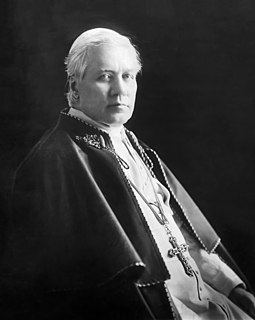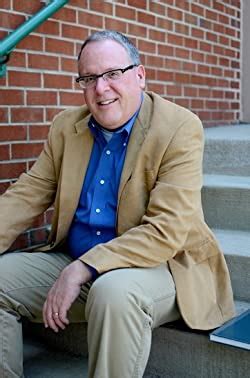Цитата Дэвида Хьюма
Все это загадка, загадка, необъяснимая тайна. Сомнение, неуверенность, воздержание в суждении кажутся единственным результатом нашего самого тщательного изучения этого предмета. Но такова слабость человеческого разума и такова непреодолимая зараза мнений, что даже это преднамеренное сомнение едва ли можно поддержать; разве мы не расширили свой кругозор и, противопоставив один вид суеверия другому, не привели их к ссоре; а мы сами, во время их ярости и раздора, счастливо уходим в спокойные, хотя и темные области философии.
Темы цитат
Точный
Другой
Внешний
вид
Спокойствие
Относительно
заражения
Раздор
Мог
Умышленно
Сомнение
Загадка
Ускользнуть
Даже
от слабости
Ярость
Счастливо
Человеческий
Человеческий Разум
Необъяснимое
Непреодолимое
Суждение
Сделать
Тайну
Неясным
Только
Мнение
Противоположное
Самому Философия
Разум
Регионы
Результат
Загадка
Едва
Рассмотрение
Набор
Видов
Субъект
Суеверие
Их
Хотя
Неопределенность
Видеть
Пока
Целое
Связанные цитаты
Философия, хотя и не в состоянии с уверенностью сказать нам, каков истинный ответ на сомнения, которые она вызывает, способна предложить множество возможностей, расширяющих наши мысли и освобождающих их от тирании обычаев. Таким образом, уменьшая наше чувство уверенности в том, что есть вещи, оно значительно увеличивает наше знание того, чем они могут быть; он устраняет несколько высокомерный догматизм тех, кто никогда не путешествовал в область освобождающих сомнений, и поддерживает наше чувство удивления, показывая знакомые вещи в незнакомом аспекте.
Когда даже самый блестящий ум в нашем мире с детства приучен к каким-либо суевериям, он никогда не сможет, достигнув зрелости, исследовать искренне, беспристрастно и добросовестно любое свидетельство или любое обстоятельство, которое может показаться поставить под сомнение обоснованность этого суеверия. Сомневаюсь, что смог бы сделать это сам.
Мы не можем начать с полного сомнения. Мы должны начать со всех предрассудков, которые у нас действительно есть, когда мы приступаем к изучению философии. Эти предубеждения не могут быть развеяны максимой, ибо они суть вещи, которые, как нам и в голову не приходит, могут быть подвергнуты сомнению. Правда, в ходе своих занятий человек может найти причину усомниться в том, с чего он начал верить; но в этом случае он сомневается, потому что у него есть положительная причина для этого, а не из-за картезианской максимы. Не будем притворяться, что сомневаемся в философии в том, в чем не сомневаемся в своем сердце.
Образованный человек должен обладать «любознательностью в изучении незнакомого и неожиданного, непредубежденностью в принятии противоположных точек зрения, терпимостью к двусмысленности, которая окружает столь многие важные вопросы, и готовностью принимать наилучшие решения, которые он может принять перед лицом неуверенности и сомнения».
Мы почти всегда стремимся к легкой религии, легкой для понимания и легкой для подражания; религия без тайн, без неразрешимых проблем, без препятствий; религия, которая позволила бы нам вырваться из нашего жалкого человеческого положения; религия, в которой контакт с Богом избавляет нас от всех разногласий, всякой неуверенности, всех страданий и всех сомнений; короче религия без креста
Есть много разных видов сомнений. Когда мы сомневаемся в будущем, мы называем это беспокойством. Когда сомневаются другие люди, мы вызываем подозрение. Когда мы сомневаемся в себе, мы называем это неполноценностью. Когда мы сомневаемся в Боге, мы называем это неверием. Когда мы сомневаемся в том, что слышим по телевизору, мы называем это интеллектом! Когда мы во всем сомневаемся, мы называем это цинизмом или скептицизмом.
Можно сказать, что человеческий род — это великое сотворчество, в котором мы сотрудничаем с Богом и природой в создании самих себя и друг друга. От этого нет спасения. Мы можем сотрудничать хорошо или плохо, или мы можем отказаться от сотрудничества, но даже отказ от сотрудничества означает оказание влияния и влияние на качество продукта. Это всего лишь способ сказать, что сами по себе мы не имеем смысла и достоинства; сами по себе мы находимся вне человеческого определения, вне нашей идентичности.
Но так как модернисты (как их обыкновенно и правильно называют) прибегают к очень ловкой уловке, а именно, представляют свои учения без порядка и систематического расположения в одно целое, разбросанные и отделенные друг от друга, так, чтобы казаться сомнительными и неизвестности, тогда как они в действительности тверды и непоколебимы, будет полезно, досточтимые братья, свести здесь их учения в одну группу и указать связь между ними, и таким образом перейти к рассмотрению источников ошибки, и предписать средства для предотвращения зла.
Важнейшим человеческим стремлением является стремление к нравственности в своих действиях. От этого зависит наш внутренний баланс и даже само наше существование. Только нравственность в наших поступках может придать жизни красоту и достоинство. Превратить это в живую силу и довести до ясного сознания, пожалуй, первейшая задача образования. Основу морали не следует ставить в зависимость от мифа или привязывать к какому-либо авторитету, чтобы сомнения в мифе или в легитимности авторитета не поставили под угрозу основу здравого суждения и действия.
Сомнение чаще всего является источником нашего бессилия. Сомневаться — значит быть неверным, не иметь надежды или веры. Когда мы сомневаемся, наш внутренний диалог звучит так: «Я не думаю, что смогу. Я не думаю, что буду»... Сомневаться — значит верить в наихудший возможный исход. Это значит верить в извращенность вселенной, что даже если я преуспею, что-то, о чем я не знаю, встанет на моем пути, саботирует меня или, в конце концов, настигнет меня.
Мы легли на землю и поцеловались. Возможно, вы улыбаетесь. Что мы только лежали на земле и целовались. Вы, молодые люди, теперь можете одалживать свои тела, играть с ними, отдавать их, как мы не могли. Но помните, что вы заплатили цену: мир, полный тайн и тонких эмоций. Вымирают не только виды животных. Но целый вид чувства. И если ты мудр, ты никогда не пожалеешь прошлое за то, чего оно не знало. Но пожалейте себя за то, что он сделал.








































